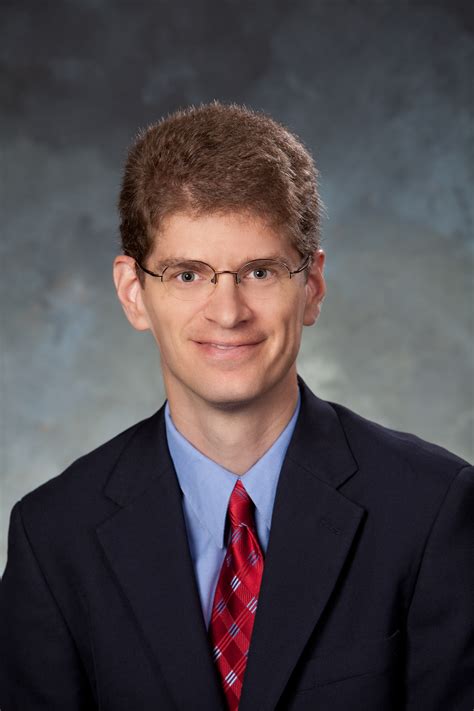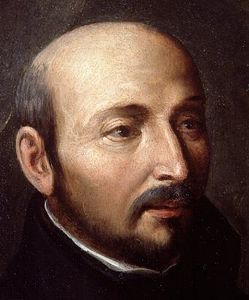A Quote by Matthew Levering
How can we know the living God and attain to everlasting union with God? This is really the only question of life. Kreeft's dialogue with Aquinas shows us what it means--existentially, not solely academically--to learn from a saint.
Related Quotes
There are two gods. The god our teachers teach us about, and the God who teaches us. The god about whom people usually talk, and the God who talks to us. The god we learn to fear, and the God who speaks to us of mercy. The god who is somewhere up on high, and the God who is here in our daily lives. The god who demands punishment, and the God who forgives us our trespasses. The god who threatens us with the torments of Hell, and the God who shows us the true path.
There are two gods. A god who casts us off because of our sins, and a God who calls to us with His love.
You hear a lot about God these days: God, the beneficent; God, the all-great; God, the Almighty; God, the most powerful; God, the giver of life; God, the creator of death. I mean, we're hearing about God all the time, so we better learn how to deal with it. But if we know anything about God, God is arbitrary.
But in the end, science does not provide the answers most of us require. Its story of our origins and of our end is, to say the least, unsatisfactory. To the question, "How did it all begin?", science answers, "Probably by an accident." To the question, "How will it all end?", science answers, "Probably by an accident." And to many people, the accidental life is not worth living. Moreover, the science-god has no answer to the question, "Why are we here?" and, to the question, "What moral instructions do you give us?", the science-god maintains silence.
Let none, however difficult the circumstances, consider himself as debarred from the way of holiness. Have we but God and the cross of Christ, we have the means for becoming altogether holy in our walk and conversation. What dungeon is there that can shut us out from this? Only let us use the present location and means faithfully and truly, taking them from God's hand, and we shall find him able to free us from all that is really a hindrance. Let us each one desire to be a saint in his own place and calling, instead of building 'castles in the air' of future holiness.
All power is God`s power; we are only vehicles. He pulsates in our hearts. He breathes through us. He sings a thousand and one songs through us. Sannyas means to let this understanding become the foundation of your life: We are not, God is. Let the ego disappear, evaporate, and you will find infinite contentment. With the ego there is only misery; without the ego there is only God; and God is bliss, and God is benediction, and God is ecstasy. Die to the ego so that God can live in you.
God himself was once as we are now, and is an exalted man, and sits enthroned in yonder heavens! That is the great secret.... It is the first principle of the Gospel to know for a certainty the Character of God, and to know... that he was once a man like us.... Here, then, is eternal life - to know the only wise and true God; and you have got to learn how to be Gods yourselves... the same as all Gods have done before you.
Adoration is not some fervent spiritual or poetic exercise reserved for a chosen few. I believe the human race will die out and destroy nature if it does not learn again how to adore God, the God in all of us, God shining and living in nature, and learn again how to act from and in that spirit of adoration.
Loving God means rejoicing in God, being eager to think of and pray to God. It means being glad to be in God's presence and to be with God alone. It means not grieving God, but rejoicing in God simply because it is God who is involved, and because we are permitted to know and have God, and to speak with and live with God.
How we live is determined by what is ultimately fueling us - our deepest desire or end goal. Do we really want to know and follow God, or are we more interested in a comfortable, pleasurable life for ourselves? Jesus asked his disciples early on, "What do you seek?" And he's still asking that question today. To be motivated to live in the presence of God, we have to believe that "the good life" is really found in him and him alone.
The glory of God is the living man, but the life of man is the vision of God', says St. Irenaeus, getting to the heart of what happens when man meets God on the mountain in the wilderness. Ultimately, it is the very life of man, man himself as living righteously, that is the true worship of God, but life only becomes real life when it receives its form from looking toward God.
The Sacrament of the Body of the Lord puts the demons to flight, defends us against the incentives to vice and to concupiscence, cleanses the soul from sin, quiets the anger of God, enlightens the understanding to know God, inflames the will and the affections with the love of God, fills the memory with spiritual sweetness, confirms the entire man in good, frees us from eternal death, multiplies the merits of a good life, leads us to our everlasting home, and re-animates the body to eternal life
In Ephesians 5, Paul shows us that even on earth Jesus did not use his power to oppress us but sacrificed everything to bring us into union with him. And this takes us beyond the philosophical to the personal and the practical. If God had the gospel of Jesus's salvation in mind when he established marriage, then marriage only 'works' to the degree that approximates the pattern of God's self-giving love in Christ.



































